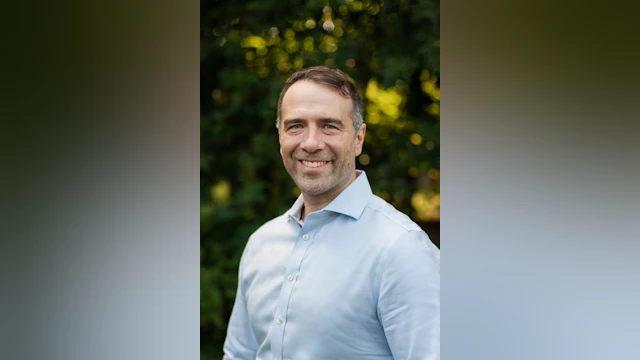In the aftermath of a suicide loss, the holiday season can often go from being a time of joy to a time when the loss and its repercussions are felt more keenly, whether the loss is recent or something you’ve experienced longer ago. That feeling of what the holidays would, could or should be like, can be very painful for many suicide loss survivors. Even for those who have received support and generally gotten back to regular life, the holidays can sometimes have a way of bringing out old memories, to the point where it might feel like Day One of grieving all over again.
As a psychologist who works with suicide loss survivors in both my private practice and research studies, I have focused on the idea of unconscious grief processes. Unconscious grief processes refer to the way that the brain continues to subconsciously process and work on a suicide loss, even when the person is consciously thinking about something else. The existence of unconscious grieving allows people to adopt a more accepting attitude towards their grief and healing. For instance, you might feel guilty that you’re not thinking of your lost loved one more, that you’re not feeling their loss as keenly as you might expect, or not getting back to things as quickly as you’d like to. Please know, even when you don’t realize it, your brain continues to do the hard work of processing your grief.
This concept can be particularly helpful during the holidays, which often bring in so many difficult expectations. Here are a few ideas that might help you approach this time in a more self-caring and accepting way:
- Expectations. The loss of a loved one to suicide is a life-changing event. While healing is possible, and survivors of suicide loss can reclaim a full and vibrant life after loss, there is no fully going back to your exact pre-suicide reality. Expectations about what holidays should be like, that are based in the pre-suicide reality, may simply not apply anymore. Holiday memories that once carried warmth and joy may, at the moment, feel painful and overwhelming. The feelings of family, connection, and contentedness that characterize this season may be inaccessible for you. That does not mean your life can’t be fulfilling, meaningful and beautiful — but it might not be in the same way as before your loss. For some, it might mean the holiday season doesn’t feel like a time of joy (at least not this year), or not the same type of joy.
- Forgiveness and the spirit of the holidays. In modern times, joy, family, gift-giving and togetherness have arisen as the primary themes of the holiday season. However, most holidays are rooted in themes of forgiveness, thankfulness and salvation. Forgiveness, in particular, is a very difficult concept for many suicide loss survivors. Some may feel they cannot forgive themselves for the things they feel guilty about. Others may feel anger toward the person they’ve lost and struggle with forgiving them. Forgiveness does not mean you have to let go of guilt you may feel, or emotions you hold toward the person you’ve lost. Forgiveness and guilt are not opposites: they go hand in hand. You can feel guilty, and also forgive yourself, at the same time. You can also simultaneously hold contrasting emotions toward the person you’ve lost. Allowing the holidays to be a time of self- and other forgiveness may allow you to stay true to the holiday season while still validating your grief.
- Caring for the Body and Healing. Healing is the body’s natural response to being wounded. From the minute we receive a wound, our body begins the process of healing. Healing also forms a nexus where our emotional and physical selves meet. Amazing studies have shown that healing from physical wounds can be impacted by love — such that people in more supportive, loving relationships may heal more quickly from physical wounds. Research also suggests that tending to our physical selves can heal our emotional wounds. Just as love and attachment can help the body heal when it is wounded, caring for your physical self can aid the process of healing emotional wounds as we grieve. My suggestion for suicide loss survivors is to try caring for your body during the holiday season, through good sleep, healthy food, relaxation and exercise, and avoiding unhealthy things like alcohol and people who feel toxic; it may help boost your own healing from loss.
The theme of self-acceptance underlies all of these suggestions. Relaxing one’s expectations, focusing on forgiveness, and caring for the body are all ways to accept yourself, wherever you are in your grieving. My own research findings, which identify unconscious processes of grief recovery, suggest that — just like learning to walk, eat or fall asleep — learning to grieve is a process that relies heavily on the unconscious mind. With this in mind, consider whether you can make this holiday season a time of self-acceptance, focused on granting yourself permission to be where you are right now, as you let your unconscious mind continue its work of grieving… and healing.
Support is available if you’ve lost someone to suicide. Learn more here.
Dr. Noam Schneck was the recipient of a Young Investigators Grant from the American Foundation for Suicide Prevention in 2014, and a Focus Grant in 2023. He currently runs a research lab within a suicide prevention center at Columbia University as well as a private practice focused on suicide loss survivors. His research and clinical work aim at understanding the role that the unconscious mind plays in grieving, and how to work with both conscious and unconscious grief processes to help bring suicide loss survivors to a place of healing.
